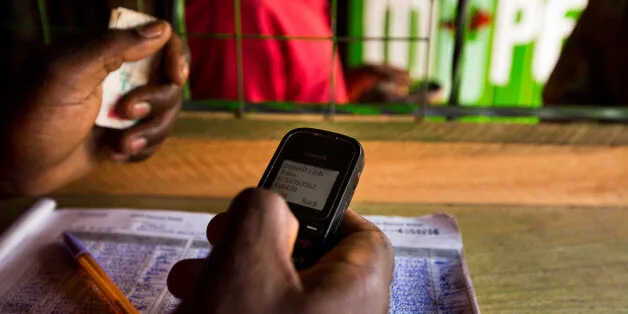The death of permanence and the rise of daring African leaders | TheCable
It’s gotten me thinking deeply, not just about the questions we ask, but about the structures we build, the decisions we make, and the systems that underpin them. It made me revisit a concept I encountered a few years ago: the death of permanence.
This term, coined and extensively explored by Alvin Toffler in his groundbreaking book Future Shock, describes the reality of a world increasingly defined by constant and rapid change. According to Toffler, traditional ideas of stability, whether in careers, institutions, relationships, or knowledge, are becoming outdated. What once stood as permanent now stands as temporary. What once was solid is now liquid. Toffler warned us: we are entering an era where adaptability will trump longevity, and systems must be designed not to last forever, but to evolve forever.
That insight is just as relevant to Silicon Valley as it is to the streets of Lagos, Nairobi, or Accra. In fact, it is more urgent in Africa.
Africa is a paradox. It is the youngest continent with the oldest systems. We run modern economies on colonial-era frameworks. We train students for the jobs of yesterday. Our policies lag behind our problems, and often our governments are more interested in power preservation than system transformation. Too often,
African leaders across business, politics, and even civil society believe in building legacies of permanence. Monuments, tenures, lifetime appointments, static institutions. But the 21st century doesn’t reward permanence. It rewards resilience, adaptability, and systems thinking.
When a leader builds a hospital and forgets to create a feedback mechanism for the communities it serves, the hospital becomes a ghost shell within a decade. When an education minister rolls out a curriculum without a flexible evaluation loop, the nation’s children suffer outdated training in a world speeding toward artificial intelligence and the climate crisis. When fintech founders build products without accounting for infrastructure gaps or financial illiteracy, we scale prematurely and collapse faster.
The continent doesn’t need monuments. It needs movements. It doesn’t need permanence. It needs a process.
Systems thinking is more than a fancy MBA buzzword. It is the discipline of understanding how elements within a whole interrelate over time and within the context of larger systems. It’s what happens when we go beyond treating symptoms to redesigning root structures.
Take, for example, Africa’s problem of electricity. We can build more power plants, but that doesn’t solve transmission failures. We can import solar panels, but that won’t fix regulatory inefficiencies or deepen local manufacturing. A systems thinker doesn’t ask, “How can we generate more electricity?” They ask, “Why are we still in darkness despite decades of investment?” Then they go deeper: “Why are we not investing in decentralised grids?” “Why are local governments disempowered in energy policy?” “Why is energy treated as a commodity and not an enabler?”
Each why peels back another layer of a system built to maintain itself, not serve its people. And this is the dangerous comfort of permanence: it often means preserving the familiar rather than questioning the effective.
Africa needs daring leaders. Not loud leaders. Not legacy-obsessed leaders. Not leaders addicted to donor funds or Western approval. We need leaders who are willing to ask uncomfortable questions, break apart the status quo, and design systems that are built to change.
Daring leadership means launching a new health initiative that’s open to being redesigned every six months based on data. It means building a digital payment solution that assumes infrastructure will improve but prepares for when it won’t. It means running a ministry or a business like a startup: nimble, feedback-driven, and customer-obsessed. Daring leadership requires humility. You must admit that your first draft might be wrong. Your second version will need to adapt. And by the time you’re onto version five, you’ll realise that leadership is less about control and more about coordination.
This mindset is rare on the continent, but it’s rising, especially among young people.
During the Mandela Washington Fellowship, I’ve met inspiring fellows from across Africa who embody a new wave of transformative leadership. One fellow from Southern Africa is rebuilding the future of organic skincare while empowering rural communities through sustainable production. Another, a brilliant woman, is tackling the water crisis, providing access to clean water, creating jobs, and actively engaging young people to scale the impact through hands-on participation and innovation. They remind me that Africa is not lacking potential; it is lacking permission to redesign.
Much of this redesign will come from outside our traditional centres of power. It will come from communities experimenting with bottom-up solutions. From startups that grow out of frustration, not funding. Women’s cooperatives are building alternative finance systems in the absence of banks. From digital innovators using WhatsApp bots to educate, treat, and connect people in local languages. And most crucially, from governments that embrace platform thinking, becoming enablers rather than bottlenecks.
Business leaders also have a responsibility to let go of permanence. In my work in fintech, particularly with Payshiga and Ojah, a cross-border commerce platform, we’ve learned that assumptions have a short shelf life. The remittance corridors we rely on today may change due to global politics or compliance regulations. User behaviour shifts with new mobile phone updates. Risk patterns are no longer static. Success, therefore, doesn’t come from building a perfect product; it comes from building a resilient, modular, and ever-evolving system.
This is also true for agriculture, logistics, education, and even fashion. African businesses must build not just for scale, but for sensitivity to culture, to environment, to policy shifts. The private sector must take the lead in building anti-fragile systems, those that benefit from shocks rather than collapse from them.
The other battlefield is education. If we keep educating Africans for a world that no longer exists, we are complicit in systemic failure. We need to teach systems thinking from secondary school. We need to raise kids who are comfortable with ambiguity, who can ask “why” until it hurts, who understand that every solution creates new problems, and that’s okay. More universities must include failure analysis in their programs. More technical colleges must teach students how to build solutions that evolve with their communities. And most importantly, we must celebrate process, not just outcome. It is dangerous when only the finish line is rewarded. It encourages short-termism, corruption, and fake performance. If we reward process, if we build feedback loops, celebrate learning, and publish iterations, we will create a generation that builds systems that grow stronger, not just older.
In a world of permanent change, leadership must evolve from a performance to a process. That means rethinking how we build, how we lead, and most importantly, how we think. Alvin Toffler warned us that “the illiterate of the 21st century will not be those who cannot read or write, but those who cannot learn, unlearn, and relearn.” This is truer in Africa than anywhere else.
We must learn. We must unlearn. And we must relearn at scale.
So perhaps my fellow Mandela Washington colleague is on to something. Maybe the most powerful question isn’t what or how, but simply: Why? And maybe, just maybe, Africa’s future depends on how many leaders are brave enough to answer that question, even when the answer demands they tear down what they once built.
can be contacted via [email protected]
Views expressed by contributors are strictly personal and not of TheCable.









